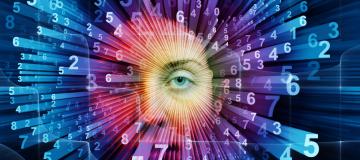Seminars
Individual differences in numerical cognition: the specific case of order/number-space interactions
29 November 2019 | 14:30 | DPSS 1 Meeting Room
Psychology Building 1, via Venezia 8, Padova
29.11.2019
It is widely acknowledged that the mental representation of numbers is closely associated with spatial processing. One of the most commonly used tasks to demonstrate this link is parity judgement. In this task, people with left-to-right reading habits typically respond faster with their left hand to small numbers and with their right hand to large numbers, i.e. the SNARC effect. More recently, a similar observation was made in serial order verbal working memory: responses to begin items are faster with the left hand and to end items with the right hand, i.e. the Ordinal Position Effect (OPE). From a theoretical point of view, it can be predicted that both effects are related to mathematical proficiency. So far however, the available results are inconsistent, mainly because an “experimental psychology” approach rather than a “differential psychology” approach was used (i.e. having different ideas about “measurement reliability” and the importance of between-participant variability).
Read more










